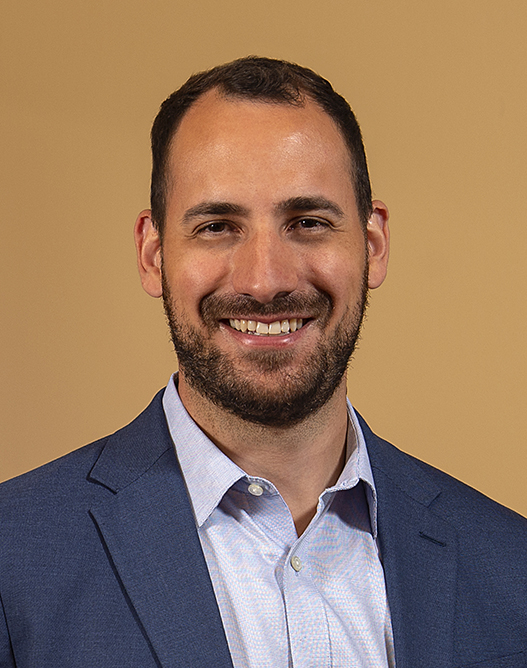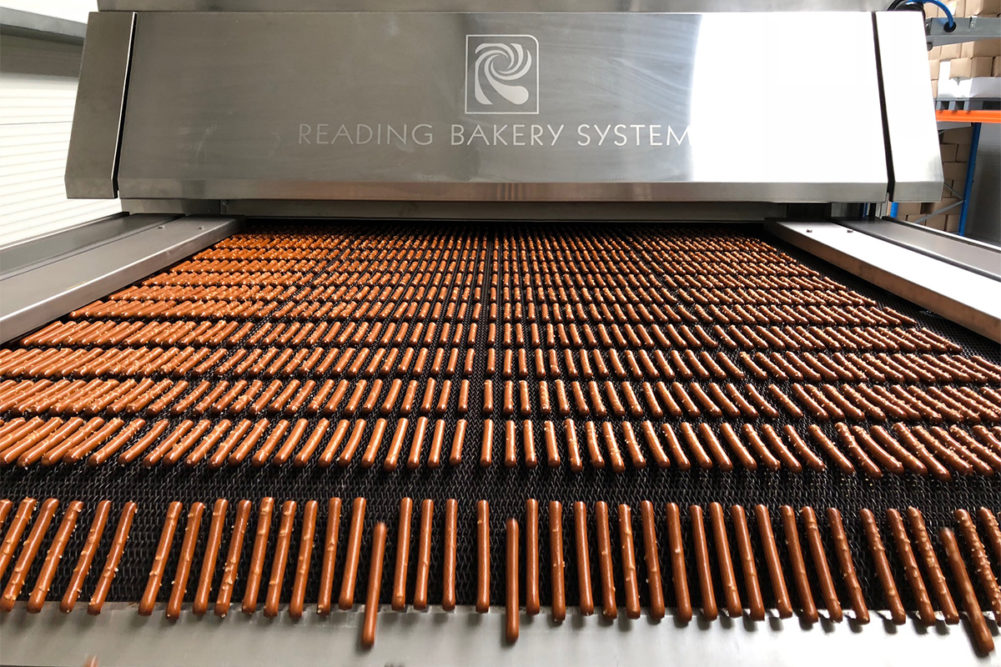Bakers understand the importance of improving on sustainability, which is a priority for customers and consumers, too. To that end, bakers are leaving no stone unturned toward that goal, including exploring equipment that will reduce energy usage. The International Baking Industry Exposition (IBIE), which will be held Sept. 17-21 at the Las Vegas Convention Center, will offer plenty of help.
Nico Roesler, North American pretzel and snack equipment sales manager for Reading Bakery Systems (RBS), will speak on Sustainable Processes for the Industrial Baking of Food Products at IBIEducate at 9:45 a.m. Tuesday, Sept. 20. The session will cover the importance of sustainability in the bakery process by focusing on people, planet and prosperity. Mr. Roesler provided some insights on the topic.
What are the greatest challenges to implementing sustainable baking processes?
 Nico Roesler, North American pretzel and snack equipment sales manager for Reading Bakery Systems. Source: Nico Roesler For so long, we’ve become used to natural gas supplying the heat to ovens. As customers look to reduce energy costs and their carbon footprint, they need to open their minds to new forms of energy. One big challenge with that is ensuring that new forms of energy will create the same bake profile for their products. For example, we are able to mix hydrogen with natural gas to reduce gas usage by about 30%. This is a good intermediate step that reduces emissions. However, bakers need to be aware that it comes with some additional infrastructure costs.
Nico Roesler, North American pretzel and snack equipment sales manager for Reading Bakery Systems. Source: Nico Roesler For so long, we’ve become used to natural gas supplying the heat to ovens. As customers look to reduce energy costs and their carbon footprint, they need to open their minds to new forms of energy. One big challenge with that is ensuring that new forms of energy will create the same bake profile for their products. For example, we are able to mix hydrogen with natural gas to reduce gas usage by about 30%. This is a good intermediate step that reduces emissions. However, bakers need to be aware that it comes with some additional infrastructure costs. They need to think about where to store the hydrogen and how to pipe it to the oven. Alternatively, we see electric energy as the most efficient replacement for natural gas. Electricity is converted 1 to 1, so there is no energy loss in the heating process, and there are zero carbon emissions.
Electric ovens will provide the same bake profile to most products. In some instances, customers may need to add steam to the oven to make up for the dryer electric heat, but that’s a simple addition to our system. The challenge with electric energy is cost and infrastructure as well.
Energy costs at the moment are still higher than gas. If you were looking to make the same pounds per hour of product in an electric vs. gas oven, the electric cost is 2.5 times more to operate. We see that changing in the future as governments impose carbon credits, and as the infrastructure to supply clean energy to more parts of the country improves.
What are the latest innovations in oven designs that support sustainability?
There are several recent design innovations, include reducing the size of the baking chamber so less energy is required to heat the space and product. We are also innovating with the types of energy we can use to heat the oven.
Our Emithermic oven utilizes a combination of convection and radiant heat to create an effective bake for things like crackers. We are able to add high emissivity panels above the product that are heated by the convection air. In between the panels we are able to bake the product with standard convection. The result is a simple-to-operate oven that accomplishes two important parts of the baking process. It does all of this without the need for direct gas-fired burners, which not only require more gas but are more difficult to maintain and operate.
The session description says you will focus on people, planet and prosperity. Can you expand on this?
We look at sustainability in these three very important pillars. For people, we want to create a culture at RBS and work with customers that value workforce diversity and empowerment.
We want to create safe working spaces, improve health and wellness, provide education, training and knowledge sharing, and continue community outreach. We feel each of these things will improve our ability and our customers’ ability to manage the workforce issues we are all experiencing today.
For planet, we want to reduce emissions, improve energy efficiency, conserve resources, create sustainable supply chains and reduce waste.
Finally, for prosperity, we want to create profitable and stable growth for our customers by providing innovation in process technology and in products, improve lean manufacturing and provide equitable distribution to all stakeholders.
What other advice would you give to bakers interested in implementing sustainable baking processes?
Many times, bakers do things because they’ve always been done a certain way. They should ask themselves, what else is there. Many times, modern solutions offer much simpler equipment that can bake any product more efficiently. These efficiency gains significantly impact a customers’ bottom line. So by having conversations about alternative forms of energy, different styles of ovens and other new innovations, customers can open a world a possibilities they never knew about. That’s one of the great things about IBIE, it opens all of those doors.





